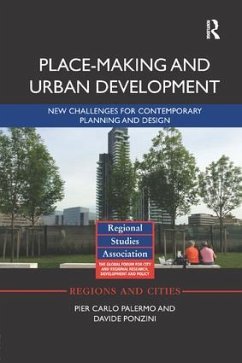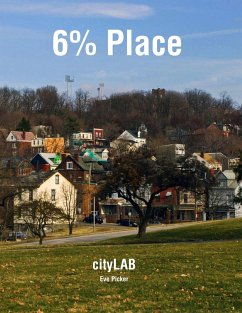
Leadership and Place
Versandkostenfrei!
Versandfertig in 1-2 Wochen
63,99 €
inkl. MwSt.

PAYBACK Punkte
32 °P sammeln!
Despite the radical transformation of society associated with globalisation, shifting patterns of demography and the revolution in information and communication technologies over the last two decades, we remain profoundly attached to place in economic, social, cultural and emotional terms. The idea of sustainable place shaping has made its way to the heart of the debate on the form and delivery of integrated (economic development, planning, housing, regeneration, education, transport and health) policy for our neighbourhoods, towns, cities and regions. The delivery of policy for place shaping ...
Despite the radical transformation of society associated with globalisation, shifting patterns of demography and the revolution in information and communication technologies over the last two decades, we remain profoundly attached to place in economic, social, cultural and emotional terms. The idea of sustainable place shaping has made its way to the heart of the debate on the form and delivery of integrated (economic development, planning, housing, regeneration, education, transport and health) policy for our neighbourhoods, towns, cities and regions. The delivery of policy for place shaping has become a far more complex cross-boundary and relational leadership task - and there is now a requirement for a refreshed approach to leadership development for collaborative learning and 'associational' working. Going forward, what is needed is a more insightful and comprehensive conceptual framework related to the leadership of place that takes account of the paradigm shift occurring in economic development, planning and regeneration studies. Against this background, this timely book takes stock of the leadership literature and connects with the experience and views of those working in economic development, planning and regeneration. In this book we seek to enhance the discussion of these new leadership challenges. This collection first appeared as a special issue of Policy Studies and is now published by kind permission in the Regional Studies Association book series, Regions and Cities.














